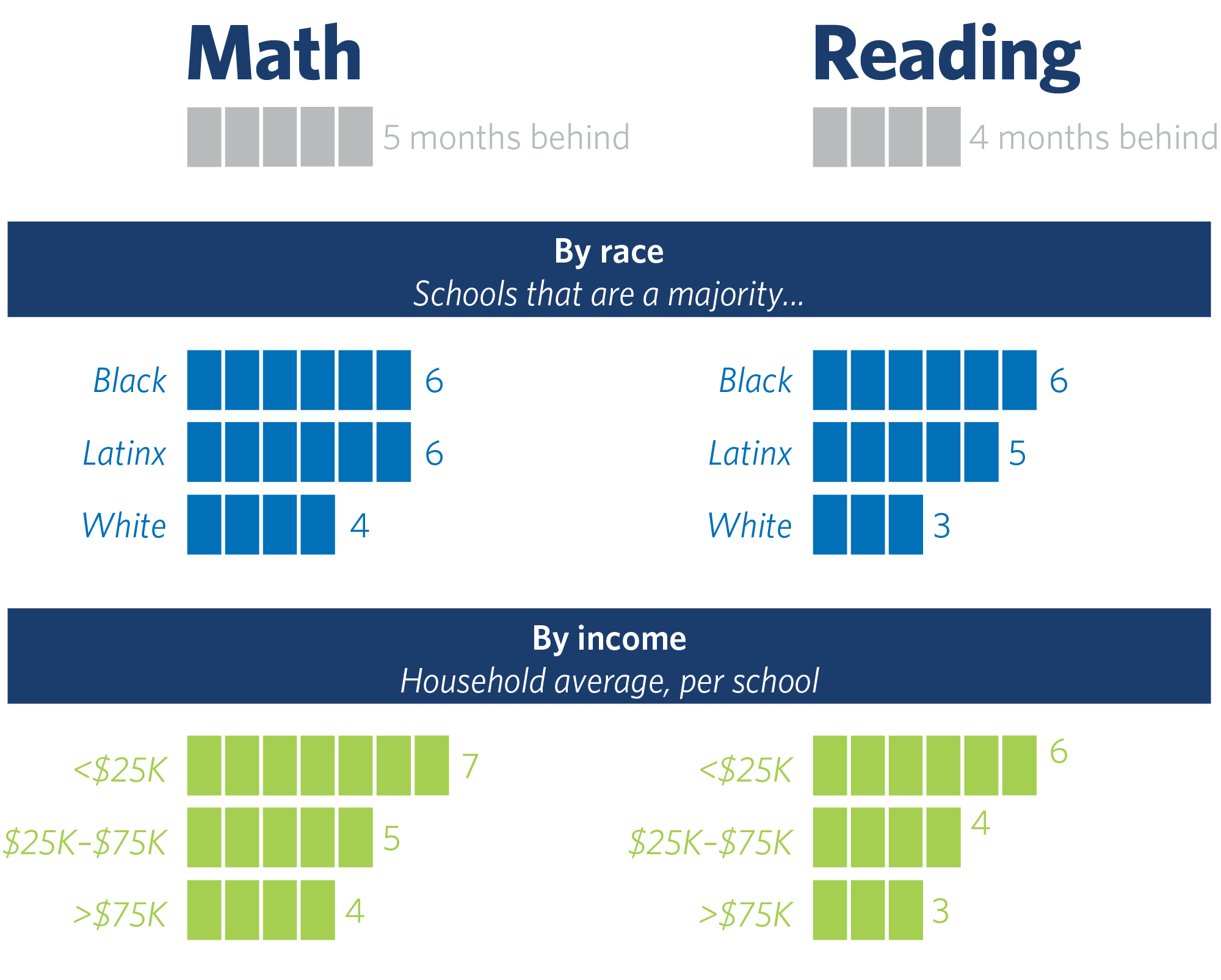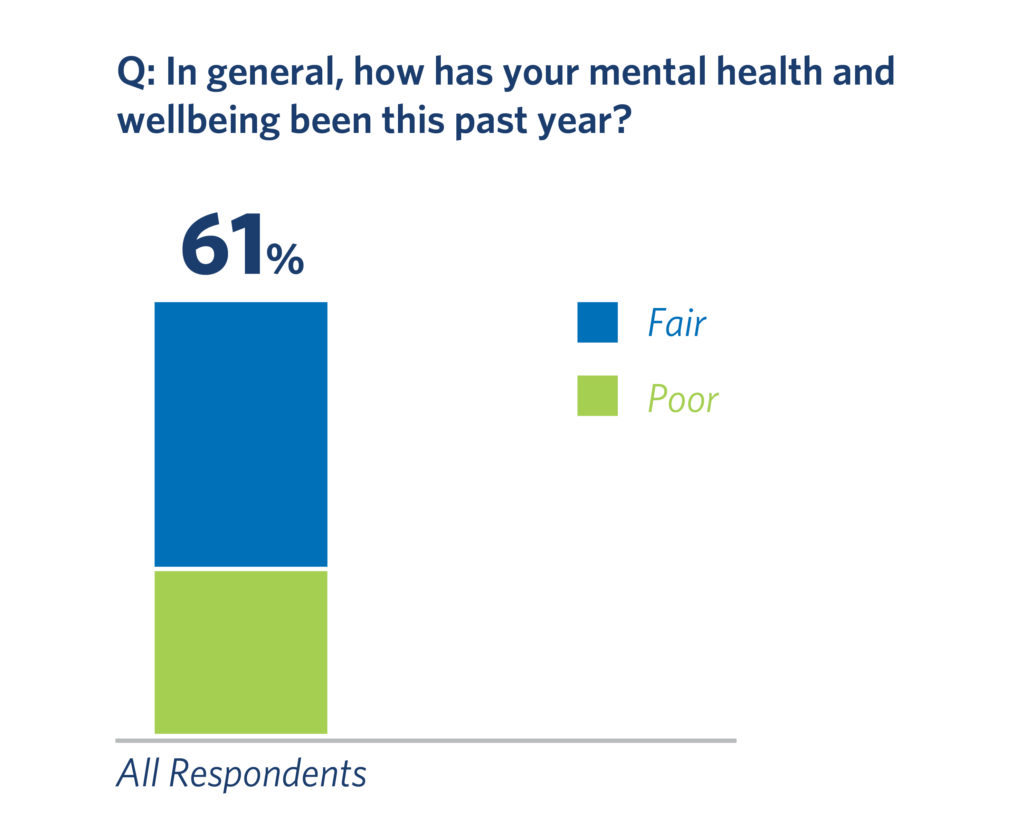
It’s still impossible to gauge just how the ongoing pandemic will affect young people over time. However, it is clear that there will be lasting effects on children’s learning and well being. What we’re beginning to see at KIPP mirrors national trends when it comes to academics and social emotional trauma.
Unfinished learning is both ubiquitous and inequitable
It’s estimated that, nationally, the pandemic left K-12 students on average five months behind in mathematics and four months behind in reading by the end of the school year. Preexisting gaps across lines of race and income only widened.
By the end of the 2020-21 school year, students were on average five months behind in math and four months behind in reading.
Cumulative months of unfinished learning due to the pandemic by type of school, grades 1 through 6

Source: McKinsey & Company
School closures and learning loss have been hard on students, especially Black and Latino students. While most students experienced social isolation and loneliness during the pandemic, some of the most vulnerable students experienced additional disruption and trauma. These disruptions ranged from job loss, loss of family members, food and housing insecurity, becoming caregivers for younger siblings, and much more.
Innovate Public Schools
Trauma from the last year disproportionately affected students like ours

A survey of KIPP alumni across the country highlighted mental health as a top concern. For all KIPP alumni, 61 percent reported “fair” to “poor” mental health during the pandemic.
Similarly, a March report from the Centers for Disease Control and Prevention found that 57 percent of young people nationwide between 18-29 years old reported experiencing symptoms of anxiety and depression within the last seven days.
What now?
As we continue to assess unfinished learning and trauma caused by the pandemic, we’re focusing on two levers—academic rigor that meets students where they are through differentiated instruction and continuing to cultivate a strong sense of belonging at our schools, ensuring they are safe places for students to explore their emotions and and be themselves.
Back to the Impact Report